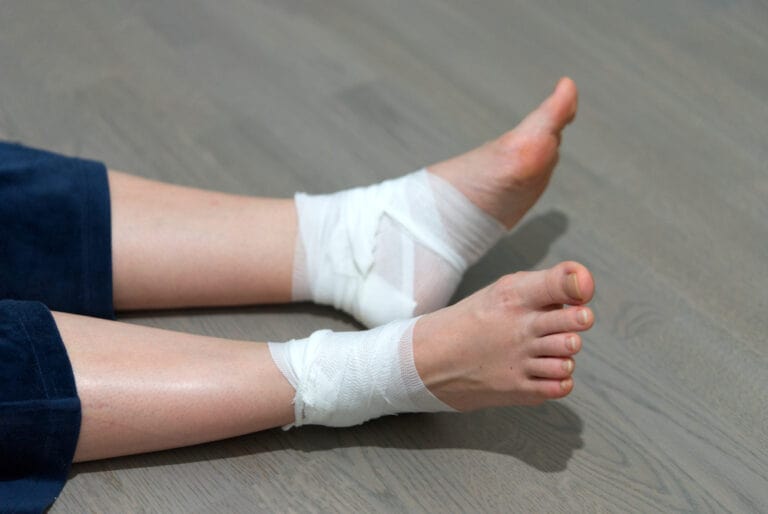
It’s easy to take our body’s ability to heal itself for granted. Throughout most of our lives, if we get a minor cut or scrape, the process to repair the damage starts immediately, with specialized cells playing complex roles to stop bleeding, fight infection, and build healthy new tissue. We may only notice the healing process when something goes wrong, as when a foot wound that seemed minor at first fails to heal properly.
In fact, certain common health conditions like diabetes and circulatory problems can interfere with the normal healing process. If infection sets in, it becomes even more difficult for even minor wounds to heal. While slow-healing wounds can potentially occur anywhere on the body, they’re extremely common on the feet.
Unfortunately, a foot wound that is slow to heal can continue to grow larger, developing into an ulcer. That turns what might have started as a scratch or blister into a serious risk for your overall health. Knowing how a slow-healing wound occurs and what can make one more likely is the first step in preventing them.
Foot wounds that are slow to heal often start with minor injuries that don’t seem like a big deal. Maybe you got a blister on your heel from a pair of dress shoes you don’t wear that often, or you scraped your toes kicking into the leg of the bed when you got up at night.
Another source of foot injuries is friction. If your feet rub repeatedly against your shoes or socks, the skin can break down. This is more likely to happen if you have a condition like bunions, corns, or hammertoes that make it difficult to find comfortable good-fitting shoes.
However it happens, when the skin on the toes or foot is broken, you’re at risk for getting an infection or developing other wound complications. If your ability to heal is compromised by other underlying health conditions, a dangerously slow-healing ulcer can result.
Among the factors that contribute to foot ulcers, diabetes is one of the most common. High blood sugar impairs the immune system and reduces blood flow, so patients who have been diagnosed with diabetes need to take extra precautions to avoid foot injuries.
Peripheral neuropathy, which is a common complication of diabetes, is also a contributing factor to foot ulcers. When the nerves in the feet and legs are damaged, the resulting numbness can make it difficult to notice that an injury has occurred in the first place. You’re also less likely to feel if an existing wound is getting worse until symptoms are advanced.
Peripheral artery disease (PAD) is another condition that makes slow-healing foot wounds more likely. PAD develops when plaques narrow the arteries that carry blood to your limbs, most often affecting the feet and legs. When your body can’t get adequate blood to the site of a wound, it can’t heal properly.
A wound that remains open gives pathogens an opportunity to take hold, causing infections that further slow the healing process. One of the most serious types is cellulitis, a bacterial skin infection characterized by redness, swelling, and pain. These symptoms are all signs that you should have your foot wound examined by a knowledgeable podiatrist immediately.
Because a slow-healing foot wound usually starts small, it may be hard to know when your injury has crossed the line into something that needs prompt medical attention. If you’re not sure, ask yourself these questions:
If the answer to any of these questions is yes, schedule an appointment right away. Getting timely care from a wound care specialist can be the difference between effective healing and life-threatening complications.
The expert team at Corona Foot & Ankle is dedicated to providing the most advanced wound care available, coupled with a holistic preventative approach that helps keep your feet healthy and injury-free. If you have a stubborn foot wound that isn’t getting better, or if you know you have health conditions that put you at risk, don’t wait to call us. Our treatment plans can help keep you healthy, active, and free from pain. To schedule your appointment, contact us here today.
Have any questions about treatment? Feel free to make an appointment, Our team will reach you soon!
Contact Us